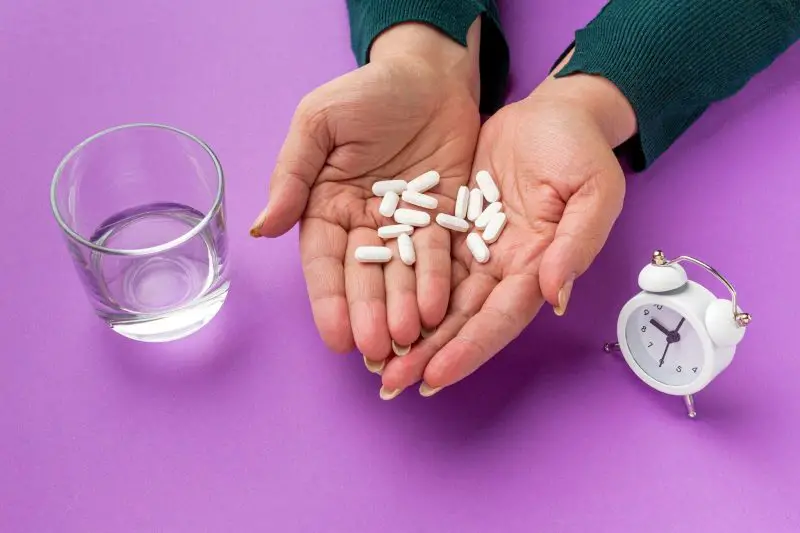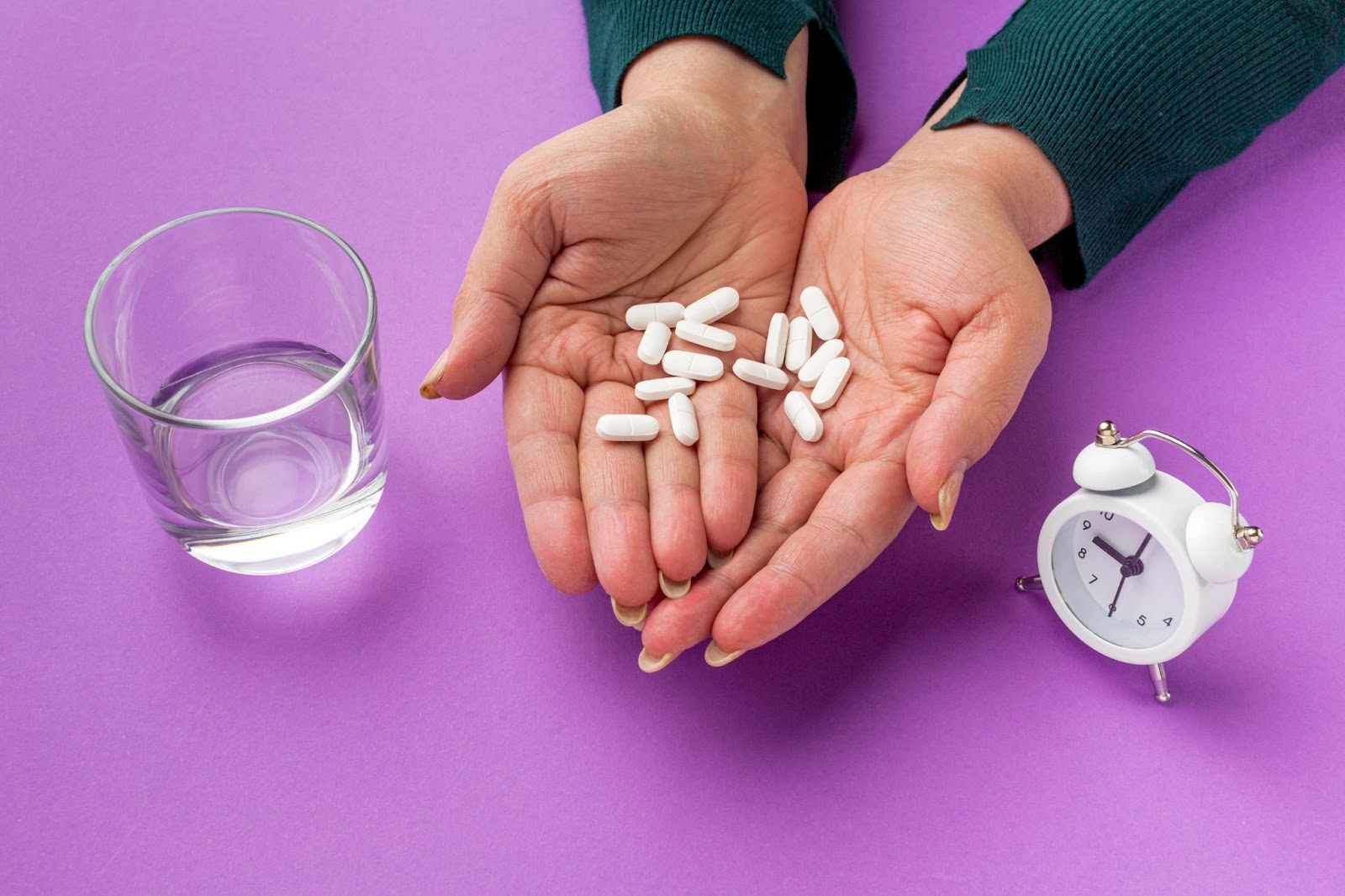Preparing for a colonoscopy can feel stressful, especially when you take medications for chronic conditions like high blood pressure. One of the most common questions patients ask is: “Can I take blood pressure meds before colonoscopy?”
The short answer is yes, in most cases—but with certain precautions. Some medications should be taken as usual, while others may need to be adjusted or withheld. Understanding how these drugs interact with sedation and bowel prep is essential for a safe and successful procedure.
In this article, we’ll explain in detail how blood pressure medications affect colonoscopy preparation, what types of drugs are safe to take, and when you should consult your doctor for personalized advice.
Understanding the Colonoscopy Procedure

A colonoscopy is a diagnostic test that allows doctors to examine the inside of your colon (large intestine) using a flexible camera called a colonoscope. It’s primarily used to detect polyps, bleeding, inflammation, or early signs of colon cancer.
Why Colonoscopy Preparation Matters
Proper bowel preparation is crucial. The colon must be completely clean for the doctor to clearly see the lining. This usually requires fasting and taking a bowel-cleansing solution to remove stool. Because of this, managing medications correctly before the procedure is vital to avoid complications such as dehydration, low blood pressure, or adverse reactions to sedation.
The Role of Sedation in Colonoscopy
Most colonoscopies are performed under conscious sedation or general anesthesia. These sedatives can temporarily lower blood pressure and heart rate. That’s why understanding how your regular blood pressure medications interact with sedatives is important.
The Importance of Managing Blood Pressure Before a Colonoscopy
High blood pressure (hypertension) is a chronic condition that can lead to serious health problems if not properly controlled. During a colonoscopy, your blood pressure is monitored continuously because fluctuations can affect sedation safety and procedure outcomes.
Why You Shouldn’t Skip Your Blood Pressure Medication Without Guidance
Stopping your antihypertensive medication abruptly can cause a rebound increase in blood pressure, which can be dangerous. However, certain drugs—especially those that affect fluid balance or kidney function—may need to be adjusted before the procedure. That’s why coordination between your gastroenterologist and primary care physician is key.
How Colonoscopy Prep Affects Blood Pressure
The bowel cleansing process can cause dehydration and electrolyte imbalances, leading to temporary drops in blood pressure. If you’re taking diuretics or certain ACE inhibitors, this effect can become more pronounced.
Types of Blood Pressure Medications and Their Effects
Different classes of blood pressure medications behave differently before a colonoscopy. Let’s break down the most common ones and what to do with each.
ACE Inhibitors (e.g., Lisinopril, Enalapril, Ramipril)
ACE inhibitors are widely prescribed for hypertension and heart failure. They help relax blood vessels but can sometimes cause blood pressure to drop too low during sedation.
Before colonoscopy:
Many doctors recommend skipping ACE inhibitors the morning of the procedure, especially if you’re taking bowel prep that causes dehydration. Always confirm with your healthcare provider.
ARBs (Angiotensin II Receptor Blockers) – e.g., Losartan, Valsartan
ARBs work similarly to ACE inhibitors but tend to have fewer side effects like cough. However, they can also increase the risk of low blood pressure when combined with sedation and fasting.
Before colonoscopy:
You may be advised to hold ARBs on the day of the procedure if your prep involves significant fluid loss.
Beta Blockers (e.g., Metoprolol, Atenolol, Propranolol)
Beta blockers control heart rate and blood pressure by reducing cardiac workload. These are generally safe to take before colonoscopy and should not be skipped unless specifically instructed.
Before colonoscopy:
Take them as usual with a small sip of water, even on the morning of your procedure.
Calcium Channel Blockers (e.g., Amlodipine, Diltiazem, Verapamil)
These medications relax blood vessel walls and lower blood pressure without major effects on hydration or electrolytes.
Before colonoscopy:
Most patients can safely continue calcium channel blockers as prescribed.
Diuretics (e.g., Furosemide, Hydrochlorothiazide)
Diuretics help the body remove excess salt and water. However, bowel prep can already cause dehydration and electrolyte imbalance, so combining both can be risky.
Before colonoscopy:
Doctors often recommend skipping diuretics on the morning of the colonoscopy to avoid dehydration.
What Happens If You Forget to Take Your Blood Pressure Medicine?
If you accidentally skip your blood pressure medication before your colonoscopy, don’t panic. Here’s what to do:
-
If it’s the day before the procedure: Take your missed dose unless your doctor advised otherwise.
-
If it’s the morning of the colonoscopy: Don’t take the medication unless your doctor approved it for use that morning.
-
After the procedure: Resume your normal medication schedule unless you’re told to delay by your physician.
Always inform the medical staff before your procedure if you missed a dose. They can adjust your monitoring or sedation plan accordingly.
How Sedation Interacts with Blood Pressure Medications
Sedation medications such as propofol, midazolam, or fentanyl can lower blood pressure and slow heart rate. When combined with antihypertensive drugs, this effect can be amplified.
Potential Risks
-
Hypotension (Low blood pressure): May cause dizziness, fainting, or reduced blood flow to vital organs.
-
Bradycardia (Slow heart rate): Especially if taking beta blockers or calcium channel blockers.
-
Dehydration-related drops: Increased risk when combined with bowel prep-induced fluid loss.
How Doctors Manage This
Anesthesiologists and endoscopy nurses monitor your vitals throughout the procedure. If blood pressure drops, they can administer IV fluids or adjust sedatives to maintain stability.
Best Practices for Taking Blood Pressure Medications Before Colonoscopy
Step 1: Discuss with Your Doctor
Always tell your gastroenterologist and anesthesiologist about every medication you’re taking, including over-the-counter drugs and supplements. Provide a full list during your pre-procedure appointment.
Step 2: Follow Clear Instructions
Your doctor may recommend:
-
Taking certain medications with a small sip of water.
-
Holding off on diuretics or ACE inhibitors.
-
Adjusting medication timing to minimize risks.
Step 3: Monitor Blood Pressure at Home
In the days before your colonoscopy, check your blood pressure regularly. Report any unusually high or low readings to your doctor.
Step 4: Stay Hydrated During Prep
Even though you’re on a clear liquid diet, make sure you drink enough approved fluids (broth, clear juice, electrolyte drinks) to prevent dehydration.
Special Considerations for Patients with Heart Disease
Patients with heart failure, arrhythmia, or coronary artery disease need extra cautio
If You Have a Pacemaker or Cardiac Stent
Always notify your doctor before the colonoscopy. Certain sedatives or fluid shifts can affect your cardiovascular balance.
If You’re on Multiple Blood Pressure Medications
Your doctor might recommend holding only one class of medication (e.g., diuretic) while continuing others. Never make changes on your own.
What to Expect on the Day of Your Colonoscopy
On the day of your colonoscopy, you’ll typically arrive with an empty stomach after completing your bowel prep. Here’s what to expect regarding your blood pressure and medication management.
Before the Procedure
-
A nurse will check your blood pressure, heart rate, and oxygen levels.
-
Inform them exactly which medications you took that morning.
-
If your blood pressure is too high or too low, the procedure may be delayed for safety reasons.
During the Procedure
Your blood pressure will be continuously monitored. If it drops, IV fluids or adjustments in sedation will help stabilize it. The medical team is trained to manage these fluctuations safely.
After the Procedure
You’ll stay in a recovery area until sedation wears off. Your blood pressure will be rechecked before discharge. You can usually resume your usual medications later that day, after you’re fully awake and able to eat or drink.
Tips for a Safe Colonoscopy When Taking Blood Pressure Medications
-
Bring your medication list: Include names, dosages, and times taken.
-
Avoid over-the-counter decongestants: Some raise blood pressure and interfere with prep.
-
Don’t overhydrate: Balance is key—drink clear fluids but avoid excessive water intake.
-
Ask about morning medications: Some hospitals provide written guidelines to avoid confusion.
-
Follow up afterward: If your blood pressure changes noticeably after the procedure, contact your doctor.
When to Contact Your Doctor
Call your healthcare provider immediately if you experience:
-
Dizziness, fainting, or extreme fatigue before the procedure.
-
Blood pressure readings above 180/110 mmHg or below 90/60 mmHg.
-
Confusion about which medications to continue or stop.
-
Dehydration symptoms such as dry mouth, dark urine, or muscle cramps.
Your doctor may adjust your prep plan or delay the colonoscopy if necessary.
Common Questions About Blood Pressure Meds and Colonoscopy
Can I take my blood pressure pills the night before colonoscopy?
Yes. Unless instructed otherwise, you can take your nighttime medications as usual with a small sip of water.
Can I take my morning blood pressure pill with clear liquids?
Some medications are safe to take with a small sip of water in the morning, but others (like diuretics) should be held. Always confirm with your doctor.
Will skipping one dose affect my blood pressure?
Missing a single dose rarely causes harm, but you should never skip doses repeatedly. Your care team will ensure your blood pressure stays safe during the procedure.
Do blood pressure meds interfere with sedation?
They can enhance the sedative effect slightly, but this is usually manageable under medical supervision.
Can dehydration from prep make my blood pressure drop?
Yes. Drink approved clear liquids to maintain hydration and reduce this risk.
Key Takeaways
-
Most blood pressure medications are safe to continue before a colonoscopy, but diuretics and ACE inhibitors may be withheld the morning of the procedure.
-
Never stop medications without medical approval.
-
Sedation can cause low blood pressure, so medical staff will monitor you closely.
-
Stay hydrated during prep, and always consult your doctor for individualized guidance.
Proper management of your blood pressure medications ensures a safe, smooth, and accurate colonoscopy experience.
Disclaimer: This article is for informational purposes only and does not substitute for professional medical advice. Always consult your doctor or healthcare provider about your specific situation, especially regarding medication adjustments before a colonoscopy or any medical procedure.



